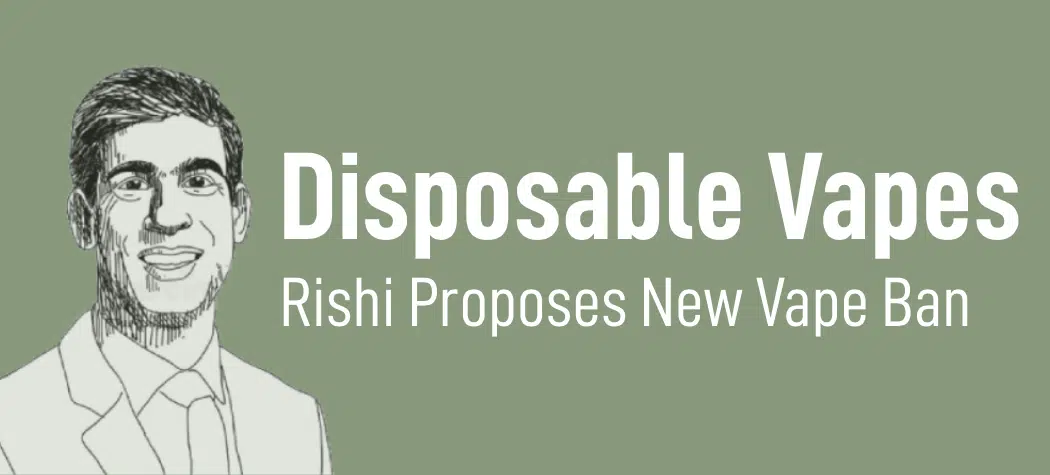Politics & Campaigns, Vaping News
UK Plans To Ban Disposable Vapes
The UK Government, led by Prime Minister Rishi Sunak, has announced plans to ban disposable vapes and introduce new restrictions on vape flavours. This approach aims to address the alarming rise of vaping among children and protect them from the potential health risks associated with nicotine dependency. But how quickly will this proposed ban come into effect and what changes could we see in 2024?
Banning Disposable Vapes and Restricting Flavours
The government’s proposed ban on disposable vapes, along with the introduction of powers to restrict vape flavours, marks a decisive step in curbing the appeal of these products to children. This action is part of a broader legislative effort that requires approval by parliament, reflecting the government’s commitment to addressing the concerning trend of youth vaping.
The Governments of Scotland and Wales have also announced their intention to prohibit single-use vapes. This proposed ban, which is part of legislation requiring approval by parliament, is a response to growing apprehension about the increasing prevalence of vaping among children. Teachers have reported observing signs of nicotine dependency among students in the classroom, underscoring the urgency of addressing this issue through legislative action.
Creating a Smoke-Free Generation In the UK
In line with the government’s pledge to create a smoke-free generation, Prime Minister Rishi Sunak has announced plans to make it illegal to sell tobacco products to individuals born on or after January 1, 2009. Additionally, vaping alternatives such as nicotine pouches will also be outlawed, signalling a comprehensive approach to reducing nicotine exposure among young people.
Announcing the move ahead of a visit to a school on Monday, Rishi Sunak said:

“As any parent or teacher knows, one of the most worrying trends at the moment is the rise in vaping among children, and so we must act before it becomes endemic.
“The long-term impacts of vaping are unknown and the nicotine within them can be highly addictive, so while vaping can be a useful tool to help smokers quit, marketing vapes to children is not acceptable.
“That is why I am taking bold action to ban disposable vapes – which have driven the rise in youth vaping – and bring forward new powers to restrict vape flavours, introduce plain packaging and change how vapes are displayed in shops.
“Alongside our commitment to stop children who turn 15 this year or younger from ever legally being sold cigarettes, these changes will leave a lasting legacy by protecting our children’s health for the long term.”
Public Support and Enforcement Measures
The government’s decision to implement these measures is backed by strong public support, with nearly 70% of parents, teachers, healthcare professionals, and the general public expressing their endorsement for further restrictions on smoking and vaping. To ensure effective enforcement, enforcement agencies, including Border Force and HMRC, are set to receive increased funding, while new fines for shops selling vapes illegally to children will be introduced.
Environmental Impact and Positive Reception
Beyond the health implications, the ban on disposable vapes is also expected to have a positive environmental impact, with an estimated five million disposable vapes being discarded weekly. The move has garnered praise from health and environmental campaigners, reflecting the broader benefits of this decisive action.
The government’s forceful stance on banning disposable vapes and restricting vape flavours underscores its commitment to safeguarding the well-being of children and addressing the concerning rise of youth vaping. By taking bold steps to create a smoke-free generation and protect young people from the potential health risks associated with vaping, the UK government is attempting to set precedent for proactive public health policy.
E-Liquids UK has been following this subject closely over the past 2 years and has reported on the problems associated with disposable e-cigarettes, how the UK Government decides to move forward with this and at what pace is yet to be known but the impacts could have big consequences for all of us in 2024.
